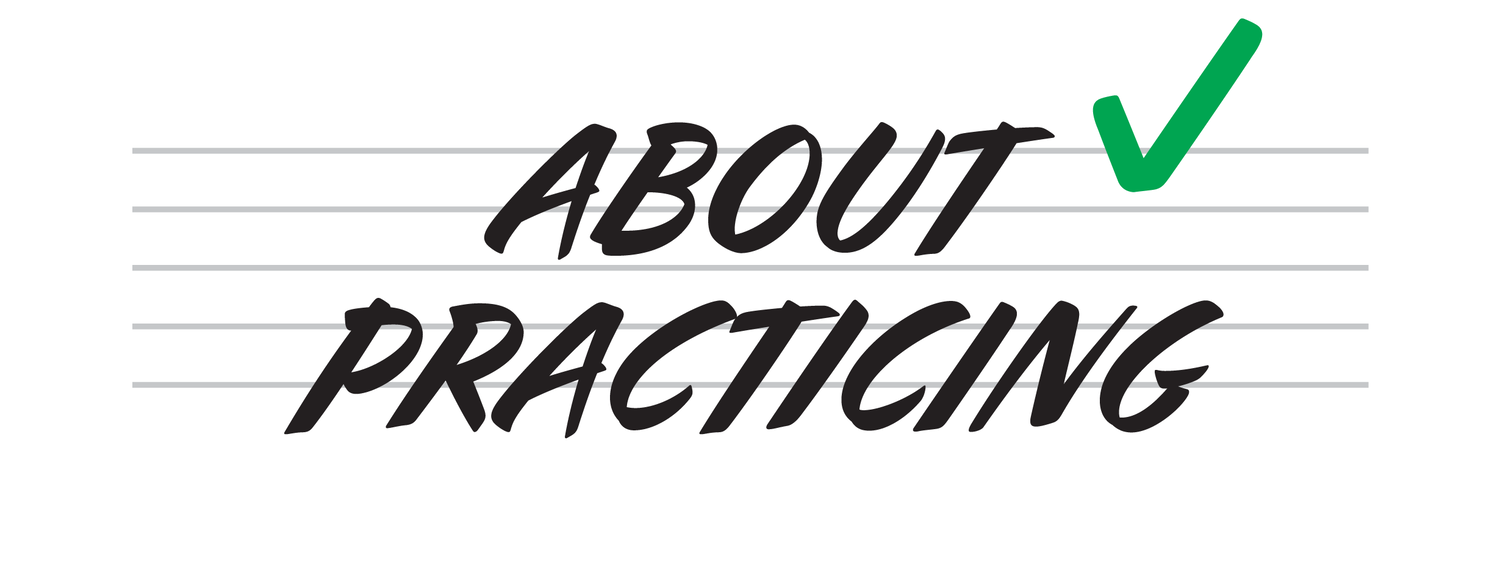Language.
I use words to talk, think and write about practicing and I am careful of how I use them. The language I use is positive. It biases me towards being optimistic, active and consistent. This makes my practicing more enjoyable, more effective, and easier.
Being exclusively positive does not mean ignoring mistakes, inabilities, or failures. It means not getting stuck in them. It means trying to find the correction for each problem in the way I describe it.
I have thought enough about practicing that I have shorthand phrases for familiar ideas. For example:
Music is not what we do. Music is the result of what we do.
You know it when your hands know it.
I have sayings that remind me of things I need to remember. For example:
Do it anyway.
I am someone who practices every day.
I don't use the words “hard” or “talent.”
I have only two judgements for a practice session: Good, or Done.
I have my own definitions. For example:
“Memorizing” is how the head retains information. It is word-friendly and idea-friendly. “Internalizing” is how the hand retains information. It is motion-friendly.
Mindset, language, philosophy, experience, approach and process are all overlapping. But language is the brick and mortar I use to build the rest.
